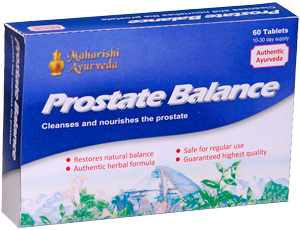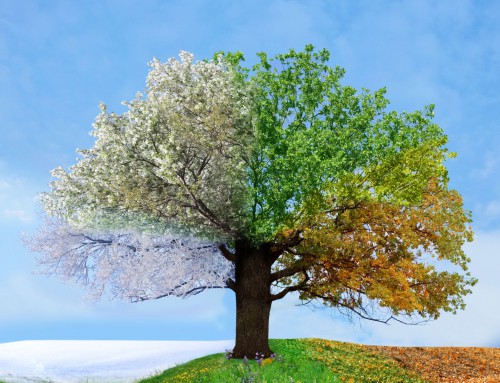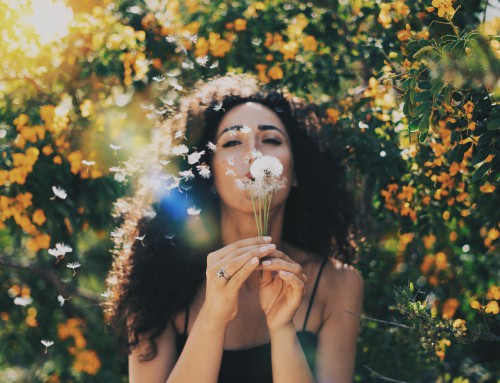In Ayurveda and the Prostate we looked at the Ayurvedic understanding of how prostate imbalances arise. We now look at the prevention and treatment strategies of Ayurveda.
What is the Ayurvedic approach to prostate issues?
When a patient presents symptoms, a good Ayurvedic practitioner will not just offer them a magic pill and say, “Go home and try this”. The practitioner will search for the underlying cause, or Hetu of that problem.
We can tend to think of the prostate as something only older men have to consider. Yet the imbalances that lead to physical problems usually start much earlier in life. Patterns of behaviour, lifestyle and diet established when young, are almost always the source of prostate issues in later life.
So the Ayurvedic practitioner will ask many questions and will not only look into the symptoms the patient presents but their behaviour, lifestyle and diet.
The good news is that, by making simple lifestyle and dietary changes, most prostate imbalances can be prevented from developing in the first place.
If prostate imbalances have already appeared, Ayurveda has both herbal preparations and detoxifying Panchakarma treatments that can help.
How can Ayurveda benefit your prostate?
Ayurveda offers a deep understanding of the development of prostate imbalances and can show links between symptoms and their underlying causes. These causes are usually found in your nature, your diet, your lifestyle and your life experiences.
This understanding alone can encourage you make the necessary changes in diet and lifestyle to prevent prostate issues before they surface.
If you have begun to display some prostate imbalances, Ayurveda can help deal with at least the early stages of their development.
If you feel you have more developed imbalances, it is essential that you consult your doctor. Then, whatever the problem, you can use Ayurveda alongside any doctor’s advice you receive.
Ayurveda’s strategies to help the prostate
All three doshas are involved in prostate imbalances. This means you need to adopt a lifestyle and diet that is balancing for Vata, Pitta and Kapha.
- Eat the largest meal in the middle of the day. This helps all three doshas remain balanced
- Avoid cold food and ice cream as these upset both Vata and Kapha
- Avoid hot spices, such as chillies and cayenne pepper, as these greatly increase Pitta
- Avoid onions, garlic and vinegar, as they also greatly increase Pitta
- Reduce tomatoes or sauces that contain tomatoes, as they are quite Pitta provoking
- Stress disturbs all the Doshas. The regular practice of Transcendental Meditation balances all Doshas and is therefore highly recommended
- Prevent the formation of Ama (the toxic by-product of poorly digested food) by:
- eating only when you feel truly hungry
- eating only to the point of satisfaction
- leaving some space on your stomach for digestion for take place
- Eating light meals in the evening
- Having your main meal at mid-day
- Eating a light breakfast, such as a couple of fruits.
- A pure and healthy organic diet is best
- Cook fresh food and avoid canned, frozen and processed foods
- Avoid eating leftovers. Your food should be fresh at every meal
- Eating in a quiet and relaxed environment is important
- Take time at the end of each meal to relax and digest
- Spices in your food help digestion. Fennel, cumin, coriander, fenugreek, turmeric and a little ginger and black pepper all help digestion and help to burn off accumulated Ama
- Daikon radish (often called Mooli in Asian shops) purifies the urine
- Asparagus helps balance your hormones
- Quinoa contains zinc which is helpful. Courgettes are also useful.
There are also specific strategies that help the body to clear Ama and which you should adopt regularly.
- Panchakarma therapy is Ayurveda’s main treatment for removing deep long-standing Ama in your body. This therapy is available in any Maharishi Ayurveda Panchakarma centre.
- Daily exercise is important. It helps your digestion, helps clear your body of Ama and strengthens your immunity. As you grow older you have to take care not to over-exercise. A daily walk is highly recommended, as are daily yoga exercises.
- Specific herbs that remove Ama, purify and strengthen the tissues, balance the doshas, eliminate waste products and that improve one’s overall health have been used for millennia in Ayurveda.
 Maharishi Ayurveda herbals useful for the prostate
Maharishi Ayurveda herbals useful for the prostate
Prostate Balance
Prostate Balance is a rich combination of herbs that not only target the prostate but also bring an overall health benefits to the whole body.
The two main herbs are Kanchanar (Bauhinia Variegata) and Guggul (Indian Bedelium), which clear Ama from the blood, muscle and fat tissues. These, along with the secondary herbs like Heart-Leaved Moonseed, Turmeric, Spreading Hogweed, Zinc and Shilajit, are anti-inflammatory, increase prostate immunity, balance testosterone levels and enhance the purity of the urine.
The overall effect is to increase intelligence in the area for prostate health.
Other Maharishi Ayurveda products that may support the prostate
- If stress is a major factor in your life Peace of Mind tablets are helpful.
- If the Shukra Dhatus needs support, Vital Man is the herbal to choose.
- If you need extra help with the purity and flow of your urine, Genitrac should be chosen.
Summary of Ayurveda and the Prostate
Maharishi Ayurveda offers a very holistic programme for renewing prostate health by not just dealing with symptoms as they arise but by handling the causal level of the problem. It deals with the underlying imbalances in the body, mind and behaviour that are at the very root of the disease process.
Maharishi Ayurveda offers strategies that nourish and balance not only the prostate, but the whole person.






